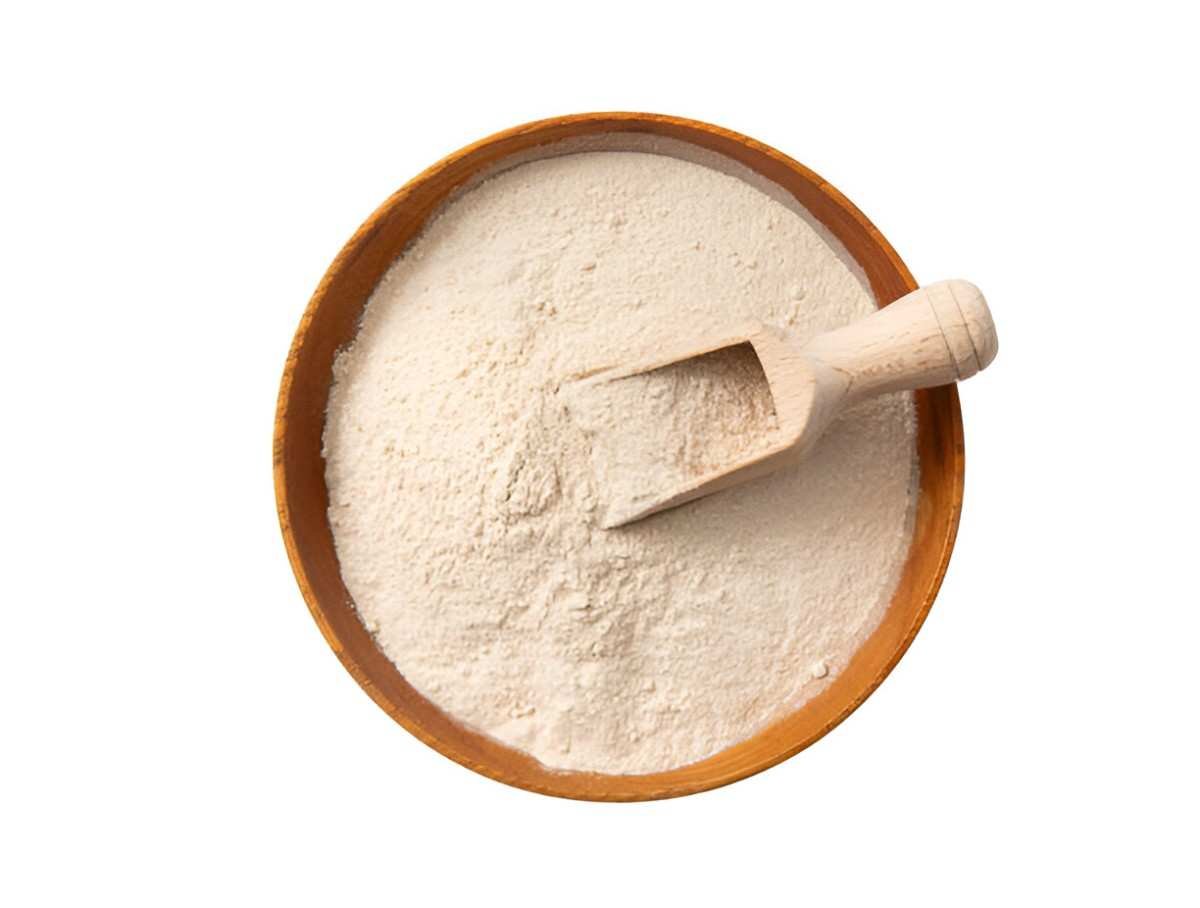Psyllium husk, derived from the seeds of the Plantago ovata plant, is a type of soluble fiber often used as a dietary supplement. Known for its beneficial effects on digestion, heart health, and blood sugar levels, psyllium husk has gained popularity among health enthusiasts. This article explores the nutritional values, key health benefits, potential therapeutic uses, cautions, and ways to incorporate psyllium husk into your diet.
Summary Table
| Nutrient | Amount per 1 Tbsp (5g) | % Daily Value (DV) |
|---|---|---|
| Calories | 20 | – |
| Total Fat | 0 grams | – |
| Total Carbohydrates | 5 grams | – |
| Dietary Fiber | 4 grams | 16% |
| Sugars | 0 grams | – |
| Protein | 0 grams | – |
| Iron | 0.5 mg | 2.5% |
| Sodium | 0 mg | – |
Nutritional Values
Psyllium husk is primarily composed of dietary fiber, particularly soluble fiber. A typical serving size (1 tablespoon or 5 grams) of psyllium husk provides:
- Calories: 20
- Total Fat: 0 grams
- Total Carbohydrates: 5 grams
- Dietary Fiber: 4 grams (16% of Daily Value)
- Sugars: 0 grams
- Protein: 0 grams
- Iron: 0.5 mg (2.5% of Daily Value)
- Sodium: 0 mg
Key Health Benefits
- Digestive Health: Psyllium husk is highly effective in promoting regular bowel movements and preventing constipation. The soluble fiber absorbs water, forming a gel-like substance that helps soften stool and make it easier to pass.
- Heart Health: Regular consumption of psyllium husk can help lower cholesterol levels. Soluble fiber binds to bile acids in the intestines, which are then excreted from the body. This process prompts the liver to use cholesterol to produce more bile acids, thereby reducing levels of LDL (bad) cholesterol.
- Blood Sugar Control: Psyllium husk can help regulate blood sugar levels by slowing down the absorption of carbohydrates. This leads to a more gradual increase in blood sugar levels, which is particularly beneficial for people with diabetes.
- Weight Management: The fiber in psyllium husk can promote feelings of fullness and reduce appetite, making it easier to control food intake and support weight loss efforts.
- Colon Health: By promoting regular bowel movements and preventing constipation, psyllium husk helps maintain a healthy colon. It may also reduce the risk of developing hemorrhoids and other digestive issues.
Potential Therapeutic Uses
- Irritable Bowel Syndrome (IBS): Psyllium husk can help alleviate symptoms of IBS, including diarrhea and constipation, due to its stool-regulating properties.
- Diabetes: Regular intake of psyllium husk can improve glycemic control in individuals with type 2 diabetes.
- Hyperlipidemia: Psyllium husk can be used as part of a cholesterol-lowering diet to manage hyperlipidemia.
Cautions
While psyllium husk is generally safe for most people, there are some cautions to consider:
- Allergic Reactions: Some individuals may experience allergic reactions to psyllium husk, including skin rashes or breathing difficulties.
- Digestive Issues: High doses of psyllium husk can cause digestive discomfort, such as bloating, gas, and abdominal pain.
- Medication Interactions: Psyllium husk can interfere with the absorption of certain medications. It is advisable to take it at least two hours before or after other medications.
- Hydration: It is essential to drink plenty of water when consuming psyllium husk to prevent it from swelling and causing a blockage in the throat or intestines.
How to Incorporate Psyllium Husk into Your Diet
Psyllium husk can be easily incorporated into your diet in various ways:
- Beverages: Mix a teaspoon of psyllium husk powder with water, juice, or smoothies. Drink immediately to prevent it from thickening too much.
- Baking: Add psyllium husk powder to baked goods like bread, muffins, and pancakes to increase their fiber content.
- Cereal: Sprinkle psyllium husk over breakfast cereals or oatmeal.
- Yogurt: Stir psyllium husk into yogurt for added fiber.
Psyllium husk is a versatile and beneficial supplement that can enhance digestive health, support heart health, aid in blood sugar control, and assist with weight management. By understanding its nutritional values, health benefits, and how to incorporate it into your diet, you can make informed decisions to improve your overall well-being.





